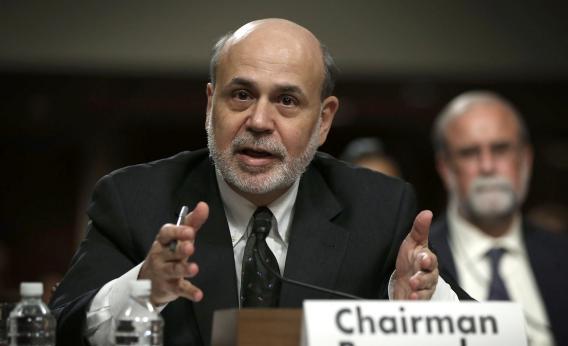Ben Bernanke delivered a great talk at Princeton University over the weekend as part of the graduation festivities, and the section on so-called “meritocracy” was the best:
3. The concept of success leads me to consider so-called meritocracies and their implications. We have been taught that meritocratic institutions and societies are fair. Putting aside the reality that no system, including our own, is really entirely meritocratic, meritocracies may be fairer and more efficient than some alternatives. But fair in an absolute sense? Think about it. A meritocracy is a system in which the people who are the luckiest in their health and genetic endowment; luckiest in terms of family support, encouragement, and, probably, income; luckiest in their educational and career opportunities; and luckiest in so many other ways difficult to enumerate—these are the folks who reap the largest rewards. The only way for even a putative meritocracy to hope to pass ethical muster, to be considered fair, is if those who are the luckiest in all of those respects also have the greatest responsibility to work hard, to contribute to the betterment of the world, and to share their luck with others. As the Gospel of Luke says (and I am sure my rabbi will forgive me for quoting the New Testament in a good cause): “From everyone to whom much has been given, much will be required; and from the one to whom much has been entrusted, even more will be demanded” (Luke 12:48, New Revised Standard Version Bible). Kind of grading on the curve, you might say.
Would-be social critics, it seems to me, far too often look at existing society and point the finger at the various respects in which it fails to live up to meritocratic ideals. Bernanke here is offering the far deeper and smarter criticism that those ideals don’t really make sense, and a world in which benefits “fairly” flowed to some kind of genetic elite (or whatever) would be horrifying. This is a point to which I was introduced a bit more than 10 years ago by Timothy Noah in Slate and that I think continues to be underappreciated.
The entire speech, I must say, is a potent reminder that I’m really looking forward to having professor Ben Bernanke back. Before becoming chairman of the Federal Reserve, Bernanke was absolutely the best writer and thinker on monetary policy around. And as Federal Reserve chairman, he’s certainly outpaced his counterparts in the eurozone and (until recently) the Bank of Japan. But judged by the standards of professor Bernanke, chairman Bernanke has been far too timid perhaps because the role is as much a political and administrative one as an analytic one. I’m looking forward to hearing more (and more candid) thoughts from Bernanke when he’s back in civilian life, and hoping Bernanke’s successor at the Fed will be a bit more of a risk-taker and a bit less of a consensus-builder in her (or perhaps his) political role.
